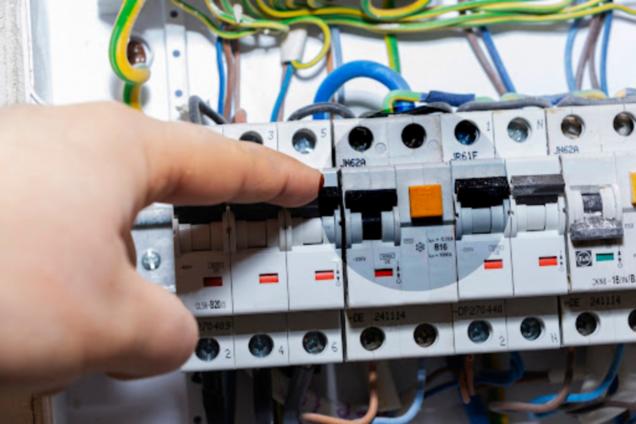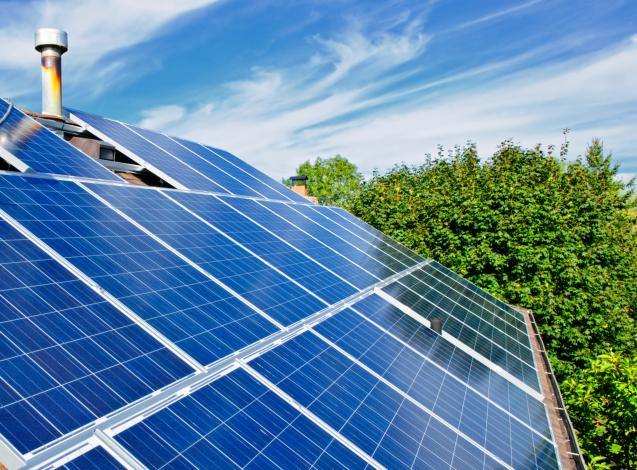
How To Handle A Power Outage
By Complete Electrical Service|August 24, 2022
Power outages aren't the most exciting thing to talk about. In fact, most people don't think about them at all until they happen. But although we may not want to discuss power outages, we need to be prepared for them. So, in this article, we will explain the most common causes of power outages, and we'll list some ways to prepare for one so that you'll have a backup plan when a blackout inevitably occurs.
Causes of Power Outages
There are many reasons why your power may go out, the most common being storms that cause flooding or tornados. Extreme weather conditions can also cause power outages. Likewise, heat waves and heavy rains cause a lot of strain on the electrical grids throughout homes and businesses, which can also lead to outages. This is because, during times of extreme heat, people tend to use their fans and air conditioners more frequently, which puts more strain on the electrical grid and can lead to blackouts.
Preparing for Future Power Outages
If you're planning to stay in your home during a power outage, you'll need to be prepared. First and foremost, make sure you have a flashlight and extra batteries on hand in case of an emergency. It's also important to have candles and matches in case the power goes out at night.
If there's no heat source in your home, make sure you have plenty of blankets or warm clothing available for everyone who lives there. An extra blanket in every room will help keep everyone warm and comfortable.
Also, if you have pets, make sure they have food and water that won't spoil if the power is out for several days. If there are any other special needs for your pet (like medication), make sure you have enough supplies on hand before the storm hits.
What To Do During a Power Outage
There are a few things to do during a power outage. First and foremost, you should make sure that everyone in your household is safe. Check on family members and friends, and make sure they know what's going on. If you have a water filtration system, check its status and make sure it's still working.
Next, check your freezer. If the power has been out for more than two hours, some foods may be spoiled. You can use an appliance thermometer to check the temperature of your freezer so that you can determine whether or not food has been damaged by the loss of electricity.
Finally: relax! Most power outages last only a few hours at most, so there's no need to panic or stress out about it too much; just stay calm and take care of yourself until everything starts working again.
After the Power Outage
If you've experienced a blackout, it's important to follow some basic steps when power is restored.
First, check your appliances to make sure they're still working and not damaged. If they are, you'll want to contact the manufacturer to get them repaired or replaced. Next, check your refrigerator and freezer. You may want to throw out any food that has spoiled during the outage.
If you have an electric stove or oven, turn off any burners that were left on during the blackout before turning them back on again. Finally, if you have a gas stove or oven, be sure to open all windows and doors for at least 20 minutes after turning it back on so fumes can escape safely.
By following these steps, you'll be able to ensure that everybody is safe and that everything is back to normal and functioning properly again.
Conclusion
Power outages are frustrating, and they can also be dangerous, but if you prepare for them in advance, you’ll be able to make the most of a bad situation and survive the blackout without any significant damage to your electronics and home appliances. Remember, a licensed electrician can help you prepare your home with backup power during a power outage.
Causes of Power Outages
There are many reasons why your power may go out, the most common being storms that cause flooding or tornados. Extreme weather conditions can also cause power outages. Likewise, heat waves and heavy rains cause a lot of strain on the electrical grids throughout homes and businesses, which can also lead to outages. This is because, during times of extreme heat, people tend to use their fans and air conditioners more frequently, which puts more strain on the electrical grid and can lead to blackouts.
Preparing for Future Power Outages
If you're planning to stay in your home during a power outage, you'll need to be prepared. First and foremost, make sure you have a flashlight and extra batteries on hand in case of an emergency. It's also important to have candles and matches in case the power goes out at night.
If there's no heat source in your home, make sure you have plenty of blankets or warm clothing available for everyone who lives there. An extra blanket in every room will help keep everyone warm and comfortable.
Also, if you have pets, make sure they have food and water that won't spoil if the power is out for several days. If there are any other special needs for your pet (like medication), make sure you have enough supplies on hand before the storm hits.
What To Do During a Power Outage
There are a few things to do during a power outage. First and foremost, you should make sure that everyone in your household is safe. Check on family members and friends, and make sure they know what's going on. If you have a water filtration system, check its status and make sure it's still working.
Next, check your freezer. If the power has been out for more than two hours, some foods may be spoiled. You can use an appliance thermometer to check the temperature of your freezer so that you can determine whether or not food has been damaged by the loss of electricity.
Finally: relax! Most power outages last only a few hours at most, so there's no need to panic or stress out about it too much; just stay calm and take care of yourself until everything starts working again.
After the Power Outage
If you've experienced a blackout, it's important to follow some basic steps when power is restored.
First, check your appliances to make sure they're still working and not damaged. If they are, you'll want to contact the manufacturer to get them repaired or replaced. Next, check your refrigerator and freezer. You may want to throw out any food that has spoiled during the outage.
If you have an electric stove or oven, turn off any burners that were left on during the blackout before turning them back on again. Finally, if you have a gas stove or oven, be sure to open all windows and doors for at least 20 minutes after turning it back on so fumes can escape safely.
By following these steps, you'll be able to ensure that everybody is safe and that everything is back to normal and functioning properly again.
Conclusion
Power outages are frustrating, and they can also be dangerous, but if you prepare for them in advance, you’ll be able to make the most of a bad situation and survive the blackout without any significant damage to your electronics and home appliances. Remember, a licensed electrician can help you prepare your home with backup power during a power outage.



